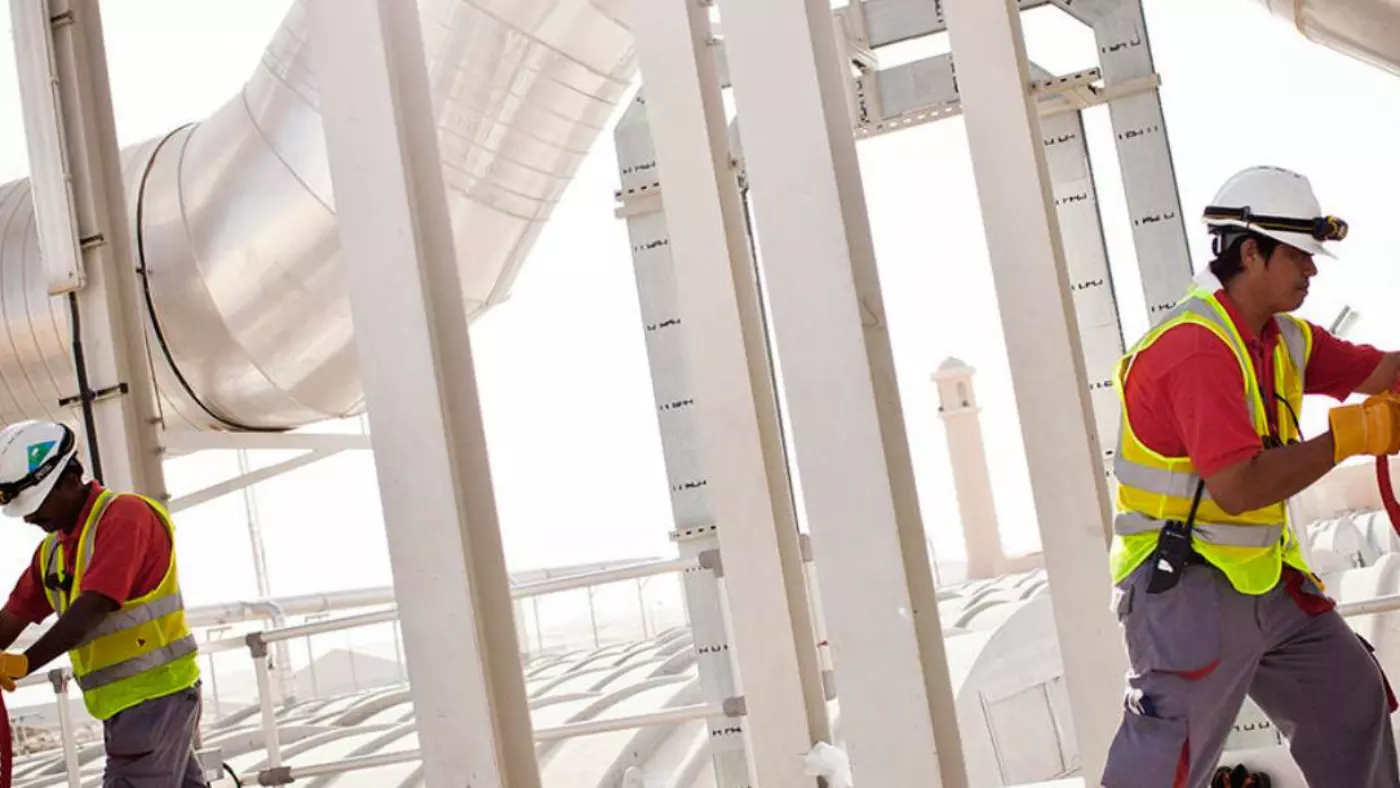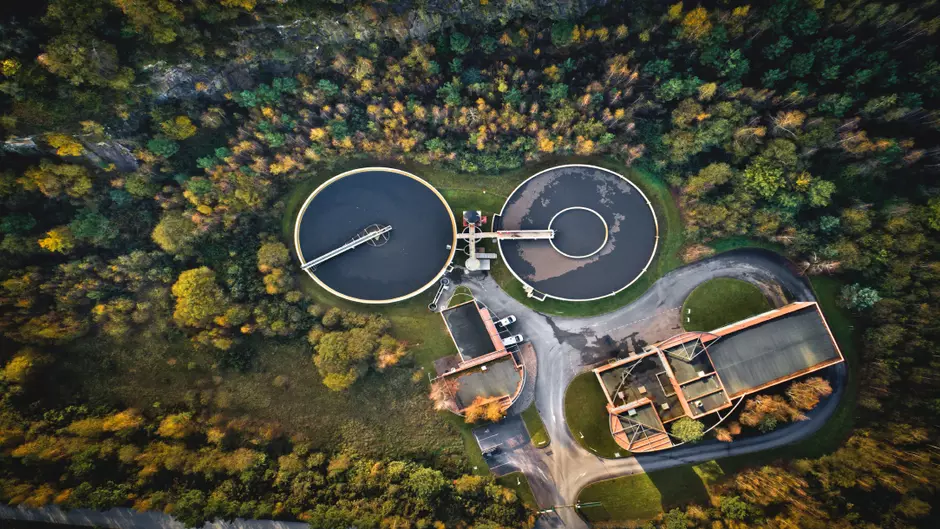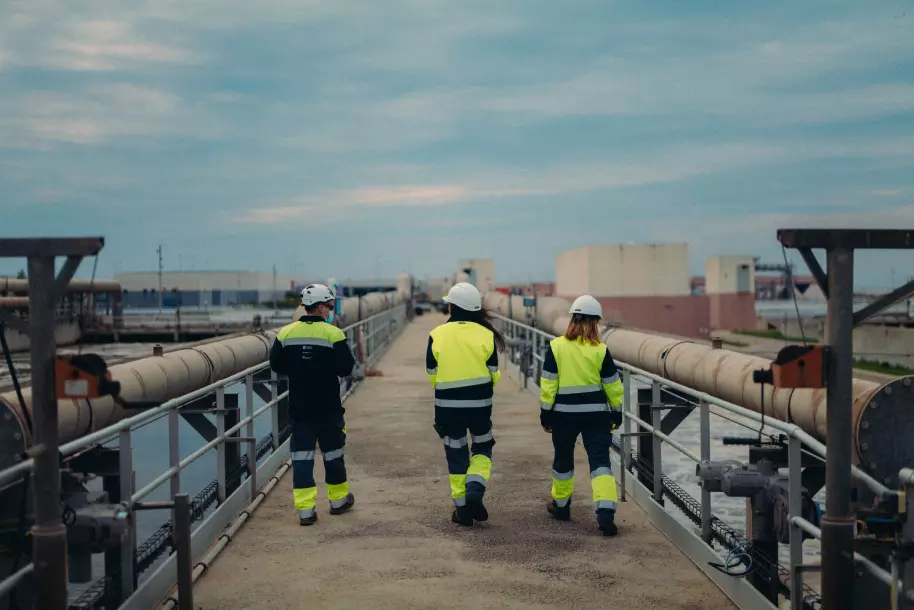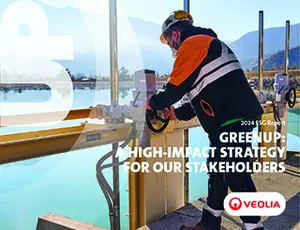Since its creation, the Group has provided essential services and contributed to public health and the improvement of people's living conditions. It is committed to conducting its business in a responsible manner, in compliance with local and international laws and regulations. The Group works with all its stakeholders to ensure a sustainable commitment to economic development that benefits everyone.
Discover in this page, the priority objectives of the Group social performance:
As a regional player, Veolia works with all local stakeholders to improve access to all essential services, contribute to local and responsible economic development, and pursue a sustainable commitment to communities and regions to strengthen health and living conditions.
The Group is continuing and strengthening its commitment to serving regions by creating new models of relationships and value creation with all players in these regions, with the aim of innovating and co-creating useful initiatives that have an impact on everyone. The Group's commitment is reflected in its contribution to public debate and dialogue with key stakeholders on issues pertaining to the implementation of ecological transformation.
Finally, Veolia ensures compliance with laws and regulations wherever it operates. Ethical rules are widely disseminated and applied throughout the Group. The values of responsibility, solidarity, respect, innovation and customer focus are at the heart of its purpose.
These objectives contribute to 6 Sustainable Development Goals of the UN: Good health and well-being (SDG 3), Clean water and sanitation (SDG 6), Decent work and economic growth (SDG 8), Reduced inequalities (SDG 10), Sustainable cities and communities (SDG 11), Partnerships for the goals (SDG 17).
Due to the wide geographic diversity of the Group’s locations, combined with the local nature of its activities, Veolia is faced with a number of challenges. Whether they are environmental, economic or social, the development of the Group’s activities generates impacts on the environment in which it operates, on society and for all stakeholders including its supplier chain. This multitude of challenges and the necessary consideration of local requirements and expectations are incorporated into the Group’s multifaceted performance strategy as part of its social performance objectives. This gives Veolia the opportunity to implement local, innovative, socially and economically efficient solutions to promote the dynamic activity and development of regions, while respecting business ethics, Human Rights and more generally its due diligence obligations towards all Stakeholders involved in its activities.
WHAT ARE THE GROUP’S ACTION PRIORITIES?
- Promote solutions to improve access to essential services:
- by ensuring sustainable access to essential water, waste and energy services, especially for the most disadvantaged populations
- by supporting aid programs for the most vulnerable populations and those who are most isolated from these services, everywhere around the world. - Contribute to local and sustainable development:
- by strengthening Veolia’s positive economic, environmental, human resources and social contribution for the benefit of communities and regions
- by rolling out the Responsible Purchasing program and establishing sustainable relationships with Group suppliers. - Commit to local communities and regions:
- by partnering with local players to co-construct solutions that meet the local challenges facing regions
- by combating exclusion, especially by opening up the Group’s professions and providing training to the long-term unemployed
- by serving as a local solidarity player, by implementing and supporting civic initiatives and raising awareness on sustainable development issues.
MULTIFACETED PERFORMANCE INDICATOR (SOCIAL DIMENSION) & 2027 TARGET
Support to local communities
Indicator
Residents benefiting from inclusive solutions to access to essential services (all activities)
2023 reference
inhabitants
2027 target
inhabitants
(on constant 2023 scope)
SOLUTIONS
Greater access to essential services
Since 2020, Veolia has been working to gain a better understanding of decentralized water access systems, which can complement the network in many regions, especially in peri-urban areas. One case in point is the project implemented through its collective approach in rural areas of Cambodia, which are not connected to the drinking water network, together with several partners - the startups Tergys and Green Citizen and the NGO 1001 Fontaines - as well as the Veolia Foundation. The goals are to improve access to high-quality water and decarbonize water production by developing a new kiosk model. The latter combines UV ultrafiltration, solar energy and digital tools to improve access to drinking water for 100,000 people.
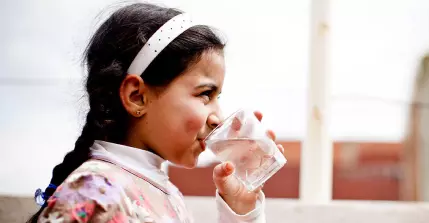
Supporting the creation of local jobs and wealth
By measuring its socio-economic footprint, Veolia assesses its impacts beyond its direct activity. Most of the Group's spending takes place in the areas where Veolia operates. By its very nature, this wealth creation, as well as the direct and indirect jobs linked to its activities, cannot be delocalized and thus contributes to the dynamism of regions, their economies and the development of their human potential. In 2023, Veolia's activities supported more than 1,561,629 full-time equivalent (FTE) jobs and generated more than €77.4 billion in added value. 86% of purchases are made locally. It should be noted that in France, this dynamic mainly benefits SMEs, which represent 74% of Veolia's suppliers. Find out more about Veolia's contribution to the creation of local jobs and wealth in regions on the Veolia Socio-Economic Footprint platform.
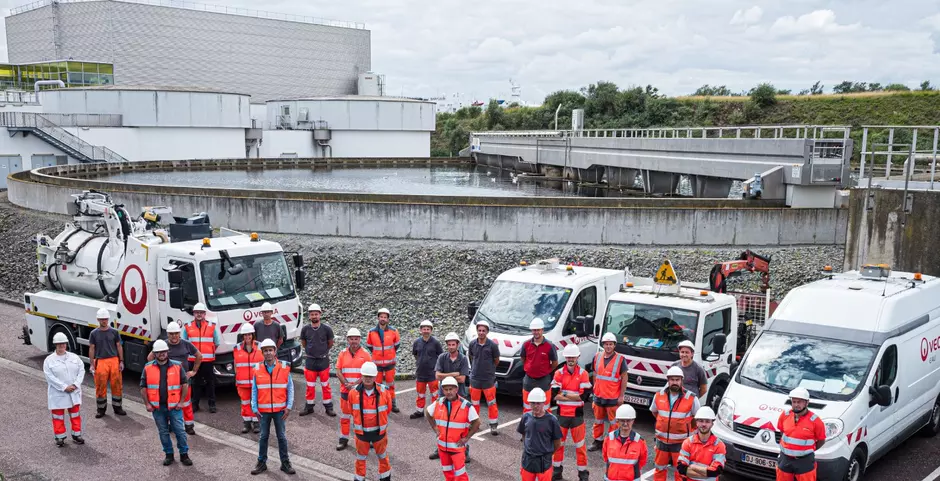
Developing employee involvement with local charities
To facilitate the direct involvement of its employees in local charities, the Group has created Resourcers for Communities, a civic engagement program. Tested in several pilot entities in France and Morocco, it is currently being rolled out in France, notably at the Aubervilliers head office. The program provides a structure for any potential volunteers interested in performing community service missions in the fields of the environment and inclusion, while facilitating the move into action through a dedicated platform that relays the needs of local charities. In addition to this initiative, mobilization is now possible in all the Group's business units (BUs), in line with the Veolia Cares program policy. By 2023, this represents 3,500 FTEs mobilized, for 1,400 initiatives carried out with more than 700 partners worldwide.
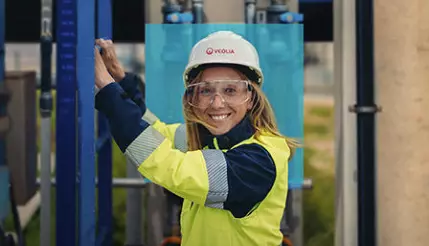
Wherever the Veolia Group operates, it endeavors to promote its own values, the laws specific to each country and the rules of conduct adopted by international organizations, in line with its purpose, which was adopted on April 18, 2019.
Regardless of the geographic area or the economic and financial situation, our business must be conducted in compliance with national and international laws and the recommendations of global organizations, in particular with respect to observing fundamental principles, taking account of cultural diversities and protecting the environment. The Group’s Ethics Guide promotes its values both internally and with stakeholders, in line with its purpose.
Ethics and compliance are not an end in themselves, but one way Veolia achieves its objectives because these values are inseparable from the trust that we must earn among our customers and other Stakeholders.
MULTIFACETED PERFORMANCE INDICATOR (SOCIAL DIMENSION) AND 2027 TARGET
Ethics and integrity
Indicator
Positive answers to the “ethic & conformity” question in Voice of Resourcers survey
2023 reference
2027 target




